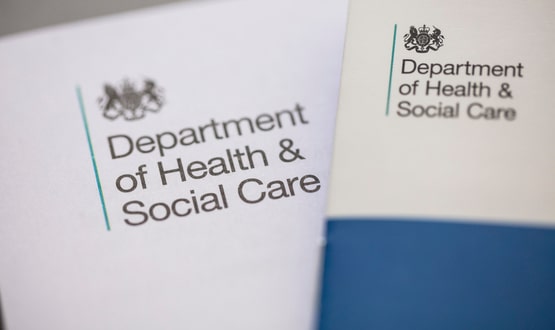DHSC must still learn the lessons of its failed IT programmes
- 6 November 2020

The Department of Health and Social Care (DHSC) and the NHS have a “long way to go” to deal with and move on from the legacy of their track record of failed IT programmes, a key government committee has said.
The House of Commons Public Accounts Committee (PAC) says it is “far from convinced” the DHSC and NHS organisations have learnt from the mistakes dating back to the National Programme for IT but also much more recent.
“The Department and NHS bodies still have a long way to go to deal with the proliferation of legacy IT systems across the health and care system and move on from their track record of failed IT programmes,” the report summary adds.
There is also a reference to the Covid-19 pandemic, with the PAC says DHSC and NHS organisations “face major challenges” in dealing with the virus.
The report adds: “We commend the work of staff across these organisations.
“This [the pandemic] has also shown the potential for organisations to deploy digital solutions and adapt to new technologies.”
Real costs of the NHS Covid-19 app
Costs of the NHS Covid-19 app were also examined by the committee with hints there could be a second app in development.
“NHSX estimated that the cost of developing the app and supporting it will be £36 million,” the report says.
“It estimated the cost of the first stage of developing the app at some £10.8 million: of that, some £4 million was spent on developing the version of the app that it moved away from, £6 million was on development that was necessary for both versions and £0.8 million was on Google and Apple technology that is now being used.
“It estimated that a further £25 million would be needed for the second app in 2020-21. But NHSX was not able to say what impact it would have on the successful tracing of people.”
Recommendations for NHSX
NHSX, the body responsible for technology innovation across the NHS, is also mentioned in a number of recommendations.
Most notably there is a recommendation of the publication of an “annual report of NHSX’s activity and the spending it controls and/or directs”. Furthermore, the tech unit is asked to publish an implementation plan for meeting its ambitions for transforming digital services with PAC saying it is a “matter of urgency”.
The PAC also says that in order for digital transformation to be delivered across the NHS, “IT systems must be interoperable”, with NHSX asked to “urgently bring forward the remaining standards in order to provide clarity for trusts and suppliers”. This includes “guidance on the potential use of the cloud to enable digital image sharing”.
Trashing the targets?
Another conclusion is that the government and the NHS has made “insufficient progress against national ambitions” with a recommendation stating that DHSC should “set realistic targets” for digital transformation as well as “sustaining the gains made during the Covid-19 pandemic”.
The recommendation adds that this should be published by March 2021.
“This should include a mix of longer-term and intermediate targets for tracking progress for both nationally-led programmes and those delivered at local health and care system level,” it adds.
Not repeating the same failures
Meg Hillier MP, chair of the Public Accounts Committee, said: “After 18 years of failed attempts to digitally transform the NHS you would hope that the one success that could be claimed was the learning and change to ensure those failures are not repeated. Incredibly, still, none of the components essential to successful delivery of the digital ambition for the NHS are in place, and instead the Government presses on with expensive and unproven strategies and contracts that cost the taxpayer millions but don’t deliver.
“The response to the pandemic demonstrates it is possible to reset and adopt new digital solutions and technologies. But there needs to be a clear strategy that works with local trusts and acknowledges the financial pressures they are under.”
The PAC report follows one carried out by the National Audit Office in May 2020, which said local NHS organisations are facing “significant challenges” when it comes to working towards digital transformation. The NAO report also set out a number of recommendations which included using digital maturity assessments of local organisations to gather additional information.





4 Comments
One mail lesson from the past is that NHS needs to think about data first, applications second. A new information architecture is key to unlocking the power of digital technologies and creating the connected health ecosystem of tomorrow. Today’s solutions tightly couple data to applications. As health and care data is for life it needs to outlive applications so there is a clear need to separate the two. Architectures for the future will have a vendor-neutral data layer at the center, so data can be used seamlessly by all apps, applications and algorithms. To bridge the gap between current and future state, standard APIs will allow legacy EHRs and new open platform-based systems to coexist, enabling innovation during the transition.
I had an article, published in late August, lamenting the problems that our vertically siloed and top down NHS structure, along with its blame-game culture caused. These were brought into full focus by our poor ability to respond to the Pandemic. I highlighted as an example our “track and trace” which empasised the NHSX, NHSD, NHSI, NHSE, confusion. The “PAC” report addresses the same issues but fails to address the cause; the desperate need for major restructuring and devolution to the regions . The NHS is only a world leader in only two things, its size and lack of innovaion. The disparities in life-expectancy between the regions (10 years+) should be reason enough for urgent action. : https://yorkshirebylines.co.uk/from-crisis-to-opportunity-is-the-pandemic-the-catalyst-to-reshaping-health-and-care-services-in-england/
I’ve still not seen a good reason why NHSX decided NHS T&T would not be given to NHS Digital to manage. It’s not like it is the existing technology arm they commission. Also an organisation that had successfully worked with partners to already develop (and assure) the NHS App.
Learning from failure is not a skill the NHS possesses. In fact, acknowledging failure is rarely done.
‘New IT Kids on the Block’ come breezing in (surrounded by expensive Management Consultants who wouldn’t know or understand the NHS and its culture if it was tattooed on their foreheads and think their bag of shiny gold coins will allow them to ‘sort it ‘art’ .
‘Move along Granddad – we’ll show you how to do it’ they say and here we go again! Just read your history. Learn from it. Don’t make the same mistakes. The NHS – our NHS is NOT Sainsburys ( Or NATWEST or any BIG corporate business).
It is complicated!
Don’t believe me?
Just read ‘The NHS IT Project: The Biggest Computer Programme in the World Ever !’
Just look at those who have done it and got it right. Why and How? Why can’t you?
Comments are closed.